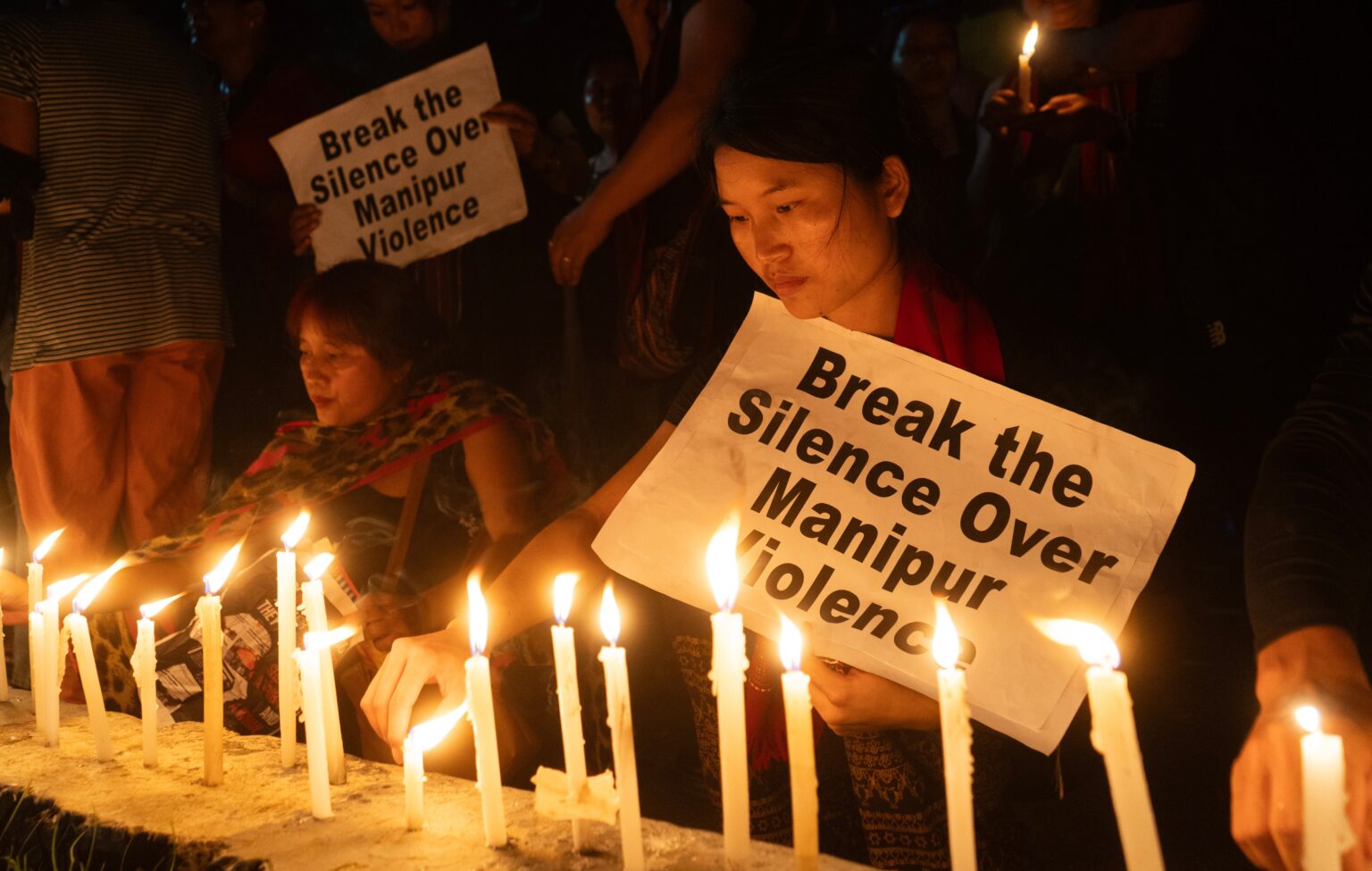
Manipur’s Political Crisis: A Call for Change?
Hammad Khan, South Asia Journal, Baloch, October 20, 2024 : Manipur, a state known for its ethnic diversity and rich cultural heritage, is now embroiled in a devastating crisis that has shaken the very foundations of its political and social fabric. The ongoing ethnic strife between the Meitei, Kuki, and Naga communities has led to widespread violence, loss of life, and displacement. In the midst of this turmoil, the state’s political leadership is also facing unprecedented challenges, with Chief Minister N Biren Singh coming under increasing pressure to step down.
Recently, a letter was reportedly submitted to the Prime Minister’s Office, signed by 19 Bharatiya Janata Party (BJP) MLAs, calling for the removal of Biren Singh from his position. The letter, which was leaked in parts, included signatures from prominent figures such as Speaker Th Satyabrata and Ministers Th Bishwajit and Y Khemchand. While Satyabrata is known to be a loyalist of Biren Singh, Bishwajit and Khemchand are seen as dissenters. This internal division within the ruling party reflects the growing frustration among legislators, as well as the broader population, with the government’s inability to bring an end to the violence and instability in the state.
The MLAs’ Appeal for Leadership Change
The 19 MLAs who signed the letter argue that the removal of the current Chief Minister is the only solution to the crisis. According to the letter, the people of Manipur are increasingly questioning the BJP-led government’s ability to restore peace and normalcy in the state. The MLAs express concern that the government’s failure to alleviate the suffering of the people is not only damaging the credibility of the BJP but also putting the future of Manipur at risk.
At the core of their argument is a critique of the heavy reliance on security forces to manage the unrest. The letter emphasizes that while security forces have a role to play, they cannot be the sole solution to the complex issues at hand. The MLAs argue that a more nuanced approach, centered on dialogue and engagement with the affected communities, is necessary to achieve lasting peace. This position is reflective of the broader sentiment in the state that the government’s approach has been too militaristic. While the deployment of security forces may have temporarily suppressed violence in certain areas, it has done little to address the root causes of the conflict, which stem from deep-seated historical grievances and socio-economic disparities.
Dialogue: The Only Path to Peace
One of the key points raised in the MLAs’ letter is the need for dialogue and engagement with the affected communities. They argue that the conflict cannot be resolved through military means alone and that meaningful dialogue is essential to achieving peace. This is a crucial observation, as the violence in Manipur is rooted in complex issues related to ethnicity, identity, and access to resources. The conflict between the Meitei, Kuki, and Naga communities has its roots in historical grievances that cannot be easily resolved. The Meitei community’s demand for Scheduled Tribe (ST) status, for example, has sparked fears among the tribal Kuki and Naga communities that their own rights and privileges may be threatened. These tensions have been exacerbated by the state’s failure to create an inclusive political framework that addresses the concerns of all communities.
The longer the conflict continues, the harder it will be to heal the divisions that have been created. The MLAs’ call for dialogue is therefore not just a political move but a necessary step towards reconciliation. Only through open and honest engagement can the state begin to address the root causes of the violence and create a pathway to lasting peace.
Time for New Leadership?
The question now is whether a change in leadership can bring about the peace and stability that Manipur so desperately needs. While the removal of Biren Singh may offer a fresh start, it is important to recognize that leadership alone will not solve the state’s problems. What is needed is a comprehensive approach that includes not only political reform but also economic development, social cohesion, and, most importantly, dialogue.
Manipur’s future depends on the ability of its leaders to rise above political infighting and focus on the needs of the people. The state cannot afford more delays, and the central government must act swiftly to ensure that peace talks are initiated without further delay. Only then can Manipur begin the long process of healing and rebuilding.

0 Response to "Manipur’s Political Crisis: A Call for Change?"
Post a Comment
Disclaimer Note:
The views expressed in the articles published here are solely those of the author and do not necessarily reflect the official policy, position, or perspective of Kalimpong News or KalimNews. Kalimpong News and KalimNews disclaim all liability for the published or posted articles, news, and information and assume no responsibility for the accuracy or validity of the content.
Kalimpong News is a non-profit online news platform managed by KalimNews and operated under the Kalimpong Press Club.
Comment Policy:
We encourage respectful and constructive discussions. Please ensure decency while commenting and register with your email ID to participate.
Note: only a member of this blog may post a comment.